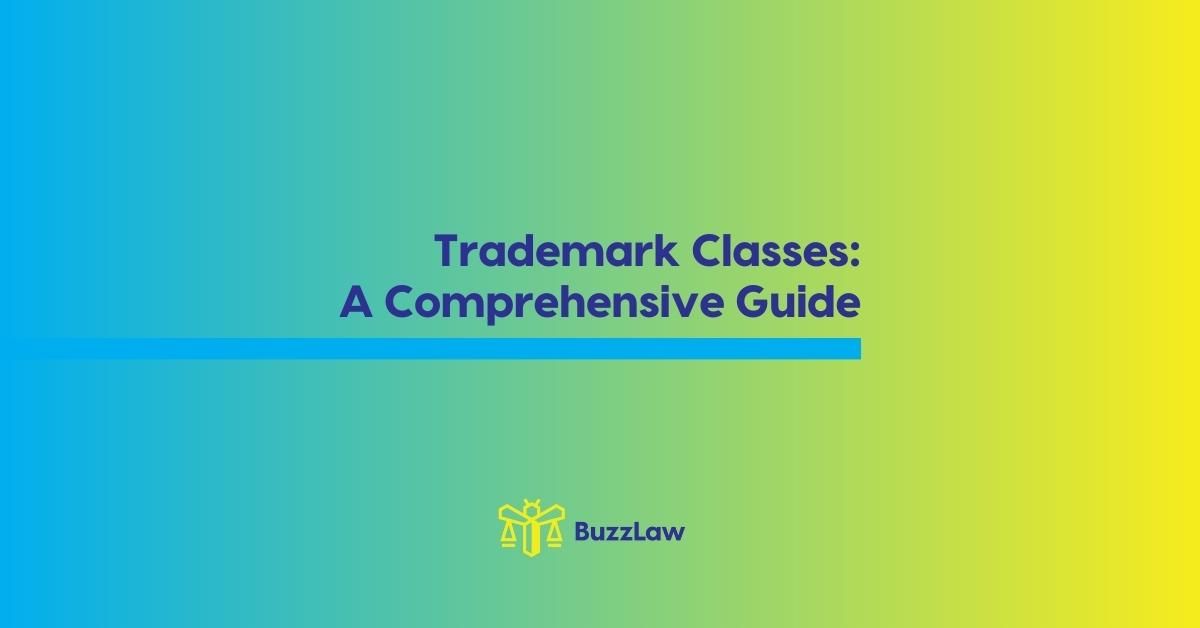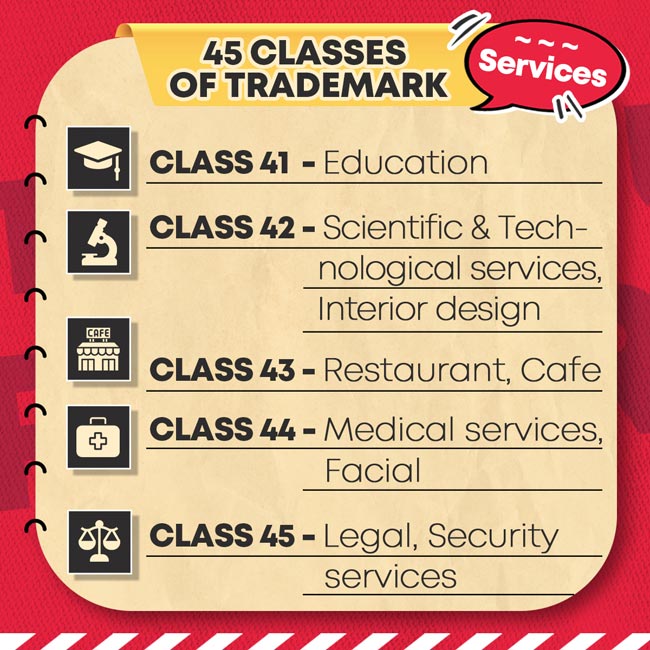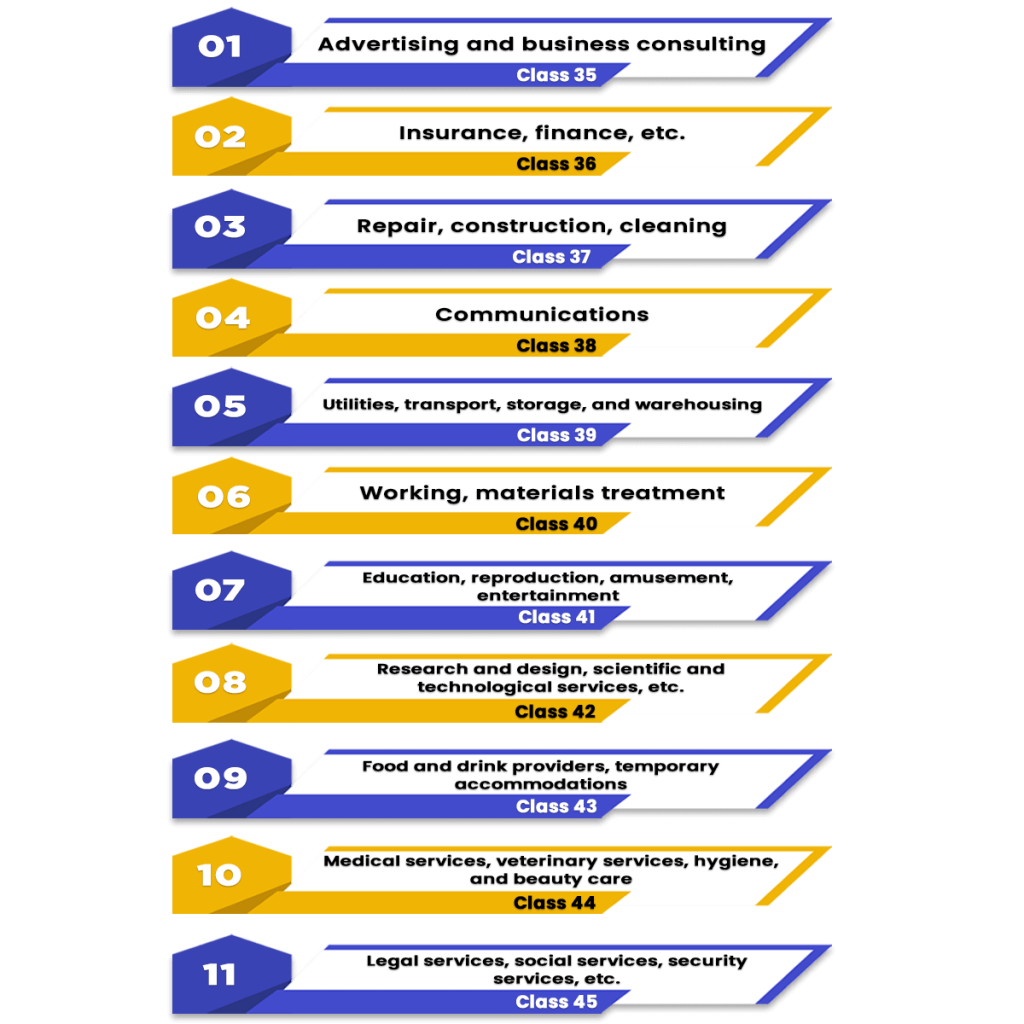Navigating the Trademark Landscape: A Guide to Hotel Trademark Classes
Related Articles: Navigating the Trademark Landscape: A Guide to Hotel Trademark Classes
Introduction
With great pleasure, we will explore the intriguing topic related to Navigating the Trademark Landscape: A Guide to Hotel Trademark Classes. Let’s weave interesting information and offer fresh perspectives to the readers.
Table of Content
Navigating the Trademark Landscape: A Guide to Hotel Trademark Classes

The world of hospitality is a vibrant and competitive market, where establishing a strong brand identity is crucial for success. A key component of this identity is a distinctive trademark, a symbol or name that distinguishes a hotel from its competitors. Understanding trademark classes is essential for securing effective legal protection for your hotel’s brand.
What are Trademark Classes?
Trademark classes are a system established by the United States Patent and Trademark Office (USPTO) and other international intellectual property offices to categorize goods and services. Each class encompasses a specific group of products or services, allowing for efficient administration and classification of trademarks.
The Importance of Trademark Classes for Hotels
Choosing the correct trademark class is paramount for ensuring your hotel’s trademark is properly protected and enforceable. Here’s why:
- Accurate Identification: Trademark classes ensure that your hotel’s trademark is associated with the specific goods or services it offers. This clarity prevents confusion with other businesses operating in different industries.
- Legal Protection: Trademark registration within the appropriate class provides legal protection against infringement by others. This protection safeguards your brand’s reputation and prevents others from using similar marks that could mislead consumers.
- Marketing and Branding: By aligning your trademark with the correct class, you establish a clear and consistent brand identity. This allows you to effectively market your hotel to the right target audience.
- International Protection: The international trademark system relies on similar class structures, ensuring that your trademark can be registered and protected in multiple countries.
Understanding the Classes Relevant to Hotels
For hotels, the primary trademark classes of interest are:
Class 35: This class covers advertising, business management, and business administration services, including:
- Hotel booking services: Online and offline platforms for reservation management.
- Marketing and promotion: Advertising, public relations, and social media management for hotels.
- Customer loyalty programs: Reward programs and membership services offered by hotels.
Class 39: This class encompasses transportation and travel-related services, including:
- Hotel accommodation: Providing rooms and facilities for overnight stays.
- Concierge services: Assistance with travel arrangements, restaurant reservations, and local information.
- Transportation services: Airport transfers, shuttle services, and car rentals.
Class 41: This class covers education and entertainment services, including:
- Spa and wellness services: Massage therapy, facials, and other treatments offered at the hotel.
- Fitness facilities: Gymnasiums, pools, and fitness classes.
- Entertainment services: Live music, theatre productions, and other entertainment options provided by the hotel.
Class 43: This class covers services for food and drinks, including:
- Restaurant services: Providing meals and beverages at the hotel.
- Room service: Delivery of food and drinks to guest rooms.
- Catering services: Event catering and banquet services offered by the hotel.
Beyond the Basics: Additional Considerations
While these classes are essential for most hotels, some may require additional classes depending on their specific offerings. For example:
- Class 9: This class covers computer hardware and software, which may be relevant for hotels with advanced booking systems or digital amenities.
- Class 16: This class covers printed materials, which may be relevant for hotels offering promotional brochures or in-room guides.
- Class 25: This class covers clothing, which may be relevant for hotels offering branded merchandise or uniforms.
FAQs by Trademark Class for Hotels
Class 35:
-
Q: What if my hotel offers a loyalty program with exclusive benefits?
- A: This would likely fall under Class 35, as it involves business management and customer loyalty services.
-
Q: My hotel manages online bookings through a third-party platform. Do I need to register in Class 35?
- A: If your hotel is primarily responsible for managing bookings and marketing, even through a third-party platform, you should register in Class 35.
Class 39:
-
Q: My hotel provides shuttle services to and from the airport. Do I need to register in Class 39?
- A: Yes, providing transportation services falls under Class 39.
-
Q: My hotel offers concierge services, but they are primarily focused on local information and recommendations. Do I need to register in Class 39?
- A: Yes, even if the services are limited to local information, they still fall under travel-related services in Class 39.
Class 41:
-
Q: My hotel has a spa offering massage therapy and facials. Do I need to register in Class 41?
- A: Yes, spa and wellness services fall under Class 41.
-
Q: My hotel organizes live music performances in the lobby. Do I need to register in Class 41?
- A: Yes, providing entertainment services like live music falls under Class 41.
Class 43:
-
Q: My hotel has a restaurant serving breakfast, lunch, and dinner. Do I need to register in Class 43?
- A: Yes, providing food and beverage services falls under Class 43.
-
Q: My hotel offers room service with a limited menu. Do I need to register in Class 43?
- A: Yes, even if the menu is limited, room service falls under Class 43.
Tips by Trademark Class for Hotels
- Be Comprehensive: Consider all services and amenities offered by your hotel, even those that may seem minor.
- Think Long-Term: Choose classes that reflect your current and future offerings, anticipating potential expansion or diversification.
- Seek Professional Guidance: Consult with a trademark attorney to ensure you choose the most appropriate classes for your hotel’s specific needs.
Conclusion by Trademark Class for Hotels
Understanding trademark classes is crucial for hotels seeking to establish a strong and protected brand identity. By carefully selecting the appropriate classes, hotels can secure legal protection for their trademarks, effectively market their services, and build a lasting brand reputation in the competitive hospitality landscape. Remember, seeking professional legal advice is essential to navigate the intricacies of trademark registration and ensure your hotel’s brand is adequately protected.








Closure
Thus, we hope this article has provided valuable insights into Navigating the Trademark Landscape: A Guide to Hotel Trademark Classes. We appreciate your attention to our article. See you in our next article!